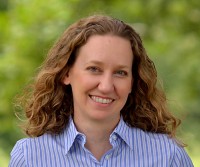This is the first in a series of interviews conducted by the Woodruff Library with the 2014-2015 Woodruff Library and Emory Center for Digital Scholarship (ECDS) Fellows. Funded by the Laney Graduate School School, the Woodruff Library and Emory Center for Digital Scholarship (ECDS) awards fellowships to advanced graduate students expecting to complete their dissertations by the end of the fellowship period. Fellows are placed within the Woodruff Library and ECDS to work in an area related to their subject specialization or interest, culminating in a formal presentation in the Spring.
An Interview with Stephanie Dean
Woodruff: Tell us a little bit about yourself. Where are you from? What’s your favorite book? What’s your favorite thing about Emory/Atlanta? Etc.
Stephanie D.: I am originally from North Carolina, where I completed degrees at Meredith College and Duke University prior to starting my Ph.D. work at Emory. I taught high school social studies in Raleigh, mainly US history and American government, before moving to Atlanta in 2009. My favorite thing about Atlanta is that it is a great combination of big city and small town. In addition to offering the amenities typical of a large city, like sports teams, high quality arts performances, and great food and entertainment, Atlanta has ample green space and a variety of smaller neighborhoods throughout the city. I have also been enjoyed the diversity of its residents, especially within the community of runners and cyclists nestled around the city. During my time here, I have become active with a number of triathlon, hiking, running, and cycling groups. This mix of great entertainment and great people makes Atlanta a very attractive place to live. Now I consider Atlanta my home
Woodruff: What are you researching for your dissertation?
Stephanie D.: My Ph.D. work is in political science, with a focus on American political institutions. My dissertation examines the strategies employed by the president in making nominations to the lower federal courts. Over the last decade, the confirmation of judicial nominees has become increasingly contentious in the Senate, forcing presidents to carefully identify and then choose between their most preferred nominee and a potentially more confirmable nominee. My project examines several of the sources of constraint on the presidential choice of a nominee, such as political polarization, the composition of the Senate membership, the composition of the court on which the vacancy occurs, and the party loyalties of key Senators. As this mix of factors creates an increasingly high level of constraint, the president will be forced to either compromise on his most preferred nominees or face rejection of his nominees by the Senate. That compromise may result in a more moderate judiciary overall, potentially demonstrating an unrecognized benefit of the contentious confirmation battles.
Woodruff: What interested you about the Woodruff Library Fellowship?
Stephanie D.: The Woodruff fellowship, and especially the position in Emory Center for Digital Scholarship, offers an opportunity to be involved the scholarship and teaching at Emory on a variety of levels. I am excited to be able support researchers at the undergraduate, graduate, and professional levels at the same time that I am further developing my own skills at data handling and management.
Woodruff: What will you be working on this year for your Woodruff Library Fellowship?
Stephanie D.: I am working in the Emory Center for Digital Scholarship with the Numeric Data Services staff. In this position, I will be helping researchers at Emory identify quantitative data sets that may be appropriate for their research questions and goals, as well as assisting with converting or managing existing data into a format that they can more readily use. I will also be working with Michael Page and Rob O’Reilly on the completion of the World Boundaries project, a multi-year effort to create a geographic dataset of the national political boundaries of the world from 1970 to the present. The ultimate goal of this project is to collect and digitize information on boundary changes during that time period and to make that data available for researchers to use on a variety of other projects.

